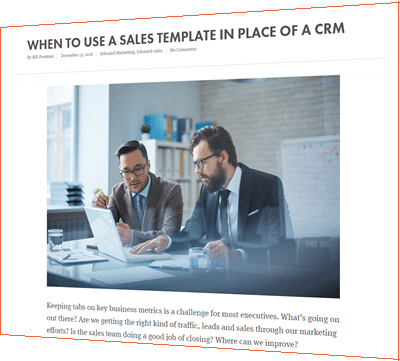 You’ve done the research, and you’ve decided that adding inbound marketing to your company’s strategy is exactly what you need to jumpstart your new business. However, outsourcing may seem like a chore. Plenty of work has to go in to finding and researching an agency, and then seeing if that agency will fit in the company. Then there’s still the risk of losing your brand image because the marketing is no longer done in-house, and what happens when the agency can’t prove their ROI?
You’ve done the research, and you’ve decided that adding inbound marketing to your company’s strategy is exactly what you need to jumpstart your new business. However, outsourcing may seem like a chore. Plenty of work has to go in to finding and researching an agency, and then seeing if that agency will fit in the company. Then there’s still the risk of losing your brand image because the marketing is no longer done in-house, and what happens when the agency can’t prove their ROI?
That said, inbound marketing is not as simple as adding software and sending out a few emails. It’s important to make sure that you’re actually prepared to tackle this new style of marketing before you dive in head first. Here are five important questions you should ask yourself before choosing to run inbound marketing in-house.
1) Do we have the resources to do inbound marketing successfully?
If you think you’re ready to start using inbound marketing, you should start by understanding the importance and magnitude of the project you are planning to undertake. Successful inbound marketing has many moving parts and pieces that you need to make sure your team can handle. Some topics include:
- Content creation
- Blogging
- Lead nurturing
- Lead generation
- Social Media
- SEO
Sounds easy right? Well, there’s a lot of underlying work in every one of the above concepts that’s going to make this process very time-consuming and resource exhausting. For example, with content creation, you need to understand the persona, where they are in the buyer’s journey, and their pain-points to generate content that will catch their attention.
It’s great to identify the need for inbound marketing, but unless you have dedicated person (or team) to to put in the hours to build the foundation that your inbound marketing strategy will stand on, you may want to re-think your timeline. Resources like buyer’s personas, blog editorial calendars, social media schedules, etc. are all critical to the effective execution of inbound marketing, and you’ll need them before you can actually get your marketing running.
2) Can we develop and execute a successful inbound strategy?
As I stated before, inbound marketing is not just about blogging and sending out emails. It requires a foundation built on keyword research, creating personas, competitive analysis, and content creation.
Once that is done, you’ll need to develop a strategy. You want to build a structure, which will make your marketing scalable. If I do X, I will get Y. You don’t want to just send random emails or blog about different topics until your leads come. You want to have a process that can get you results so you can come back to it and build campaigns for future use. Is developing a strategy easy? Not at all, but you can check out our completely free Sample Gameplan and get insight into the strategy we use for every one of our clients.
3) Are we ready to abandon our old-fashioned ways?
Old habits die hard right? While most companies are truly willing to change their efforts for better results, they often find it hard to let go of the past. You have to be prepared to let go of your ways to create an experience for your audience and their needs.
However, before you get rid of all your old marketing strategies, take time to go through and see what works and what hasn’t worked. Look through your strategies to determine which, if any, are worthy of continuing, and which ones you plan to add. Doing this before you get started will make it much easier for you to move forward.
4) What are our goals?
There is no question that inbound marketing is important and very useful to have in your marketing strategy. However, you shouldn’t consider it a magic pill for success. Inbound marketing has the ability to deliver impressive results over time, but there is without a doubt, a ramp-up period.
While results may not be immediate, you’ll still want to create a list of the goals and expectations your marketing team has for this new strategy. The process may seem difficult at first. What do I measure? How can I ensure these are the right goals? While there is no correct answer across the board, you may want to check out this blog post on setting S.M.A.R.T. goals.
5) What happens if we don’t meet our goals?
If you fall short of some of your goals, ask yourself what your next steps are. Will you quit all inbound marketing efforts moving forward? Will you give it another shot? Adjust your strategy? Set more realistic goals? It’s important to remember that inbound marketing success doesn’t come overnight. It takes time, patience, and a strategy to generate great inbound success.
Still curious as to whether in-house inbound marketing is right for you? Check out our free ebook below which analyzes the cost and benefit of both in-house and outsourcing your inbound marketing efforts.





